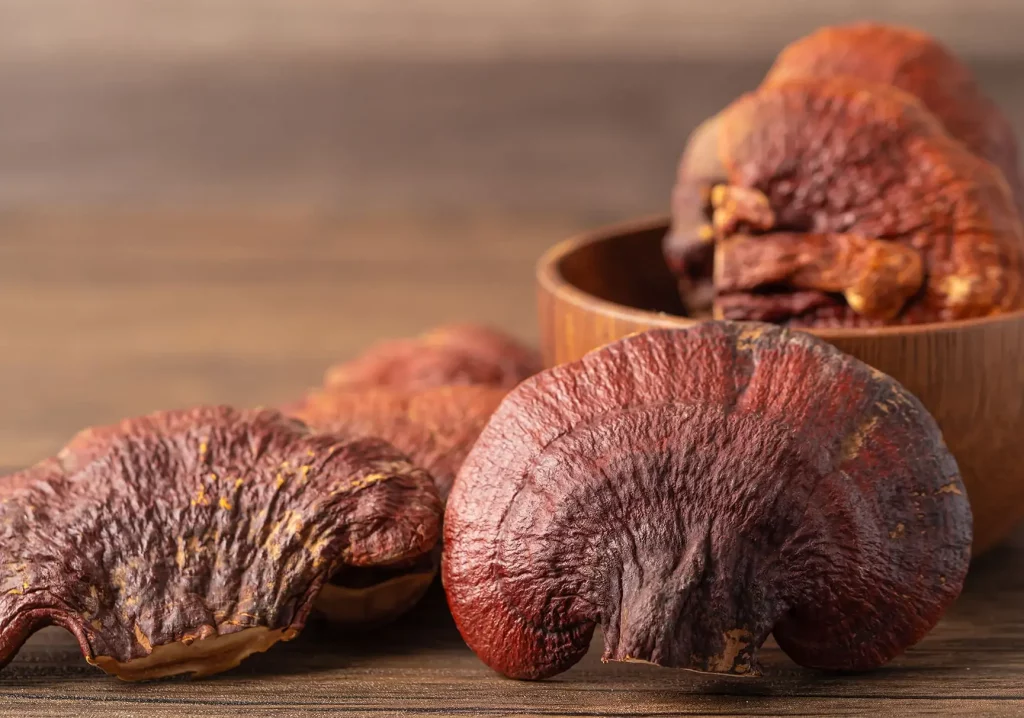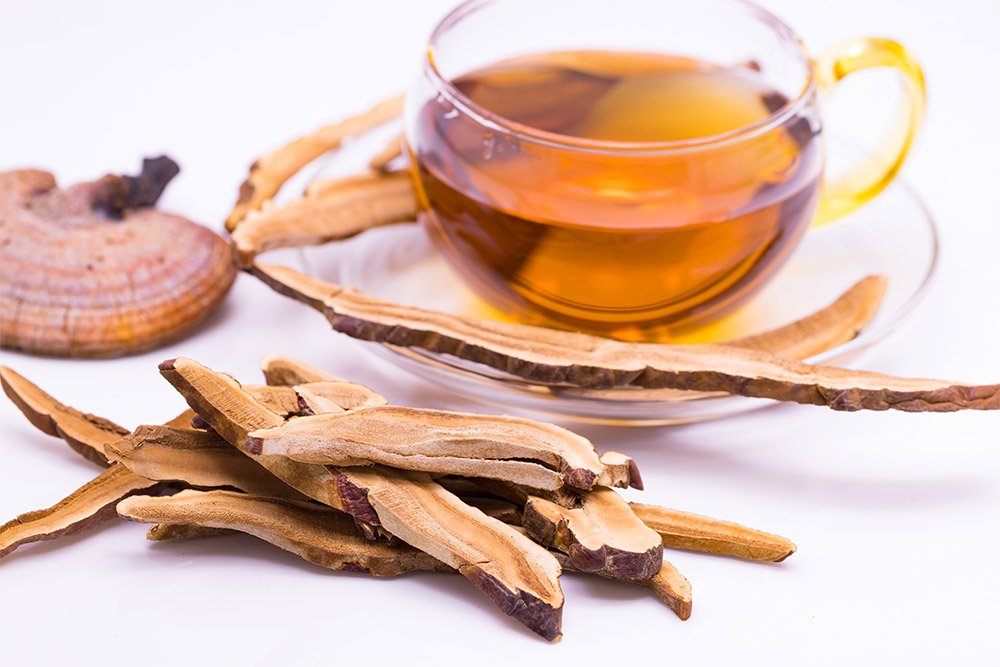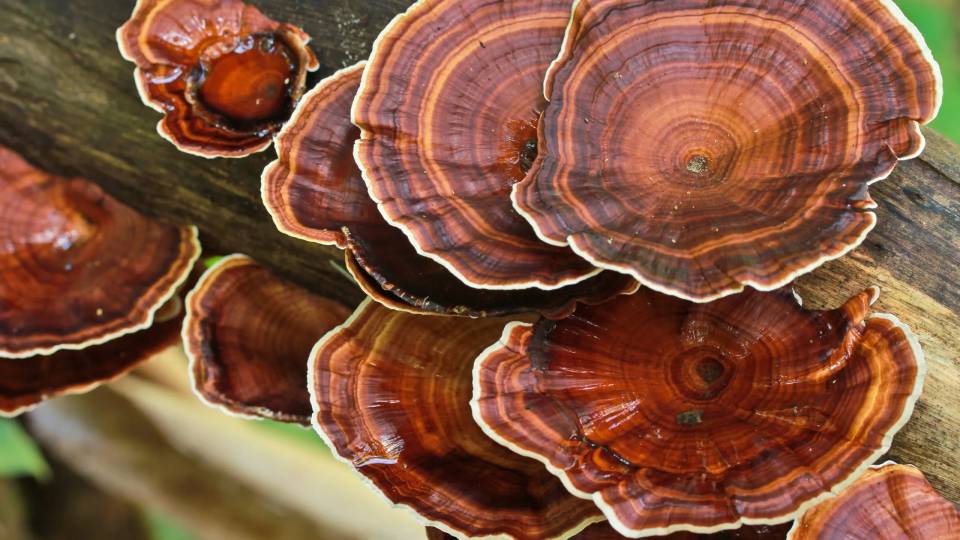How Long Does It Take for Reishi Mushroom to Work?
Are you curious about the effectiveness of reishi mushrooms and how long they take to work? These mushrooms have remarkable health benefits and come in various forms like capsules, powders, and teas.
In this article, we’ll explore the advantages of reishi mushrooms and the best timing to incorporate them into your routine for optimal results. Let’s discover how long it actually takes for reishi mushrooms to work and when to consume them for maximum benefits.
In this article:
What is Reishi Mushroom?
Reishi mushrooms, also known as Ganoderma lucidum or lingzhi, have been utilized for centuries in Asian countries as a medicinal remedy, particularly for treating infections. Often hailed as the “mushroom of immortality,” reishi mushrooms possess remarkable health benefits that have captivated Eastern cultures.
These unique mushrooms exhibit a distinct kidney or fan-shaped cap with a glossy, lacquered appearance, showcasing colors that range from reddish-brown to black. They typically thrive on decaying logs or tree stumps.
The medicinal properties associated with reishi mushrooms stem from their bioactive compounds, such as triterpenes, polysaccharides, and peptidoglycans[1]. These compounds play a vital role in the mushroom’s therapeutic effects, contributing to its diverse range of health benefits.
What are the Benefits of Reishi Mushrooms?
Reishi mushroom has gained widespread recognition for its potential health benefits, which have been extensively studied in both traditional medicine and scientific research.
Let’s explore some of the key advantages associated with consuming reishi:
Boosting Immunity
Reishi mushroom contains compounds that can enhance immune system function. By stimulating the production of white blood cells and activating natural killer cells, it aids in defending the body against pathogens and maintaining overall health.
Reducing Anxiety and Improving Sleep Quality
Reishi mushroom is believed to possess adaptogenic properties, enabling the body to better cope with stress. Studies indicate its potential to reduce anxiety and improve sleep quality, promoting a sense of relaxation and tranquility[2].
Supporting Heart Health
Research suggests that reishi mushrooms may contribute to cardiovascular well-being by lowering blood pressure and cholesterol levels[3]. This can be attributed to its ability to improve blood circulation and regulate lipid metabolism.
Anti-Inflammatory and Antioxidant Effects
With its potent anti-inflammatory properties, reishi mushrooms can combat chronic inflammation in the body. Additionally, its antioxidant compounds help neutralize free radicals, reducing oxidative stress and potentially aiding in the prevention of certain diseases.
Anti-Aging
Reishi mushrooms have gained attention for their potential anti-aging effects. Studies suggest that Reishi may contribute to skin health, reducing the appearance of aging signs. Its antioxidant properties help protect against oxidative stress, a common cause of premature aging.
Cancer Treatment Support
While further research is needed, preliminary studies suggest that reishi may possess anticancer properties. Laboratory studies indicate its potential to inhibit the growth of cancer cells and enhance the immune response against tumors[4].
IMPORTANT NOTE
While it’s not a magical solution, incorporating Reishi into your routine may complement a healthy lifestyle and contribute to maintaining youthful vitality. Remember, individual results may vary, so be patient and consistent in your usage to potentially experience its benefits.
How Long Does It Take for Reishi Mushroom to Work?

The effectiveness of reishi varies from person to person. When you consume it, the bioactive components of reishi mushroom take a few days to a few weeks to accumulate in your body and produce noticeable effects. Some people may start experiencing benefits in approximately 10 days, while others may need to wait longer.
Reishi mushroom acts by supporting your body’s natural processes and promoting optimal function. Its adaptogenic properties assist in maintaining a healthy immune system, reducing stress, and supporting various physiological functions. It’s important for you to exercise patience when adding them to your daily routine.
It’s also worth noting that the benefits of these mushrooms are often cumulative, meaning they tend to improve over time with consistent usage. As the bioactive compounds accumulate in your body, you will start noticing their positive impact more prominently.
Working with your healthcare provider can help you determine the appropriate dosage and duration of reishi mushroom consumption. They can provide personalized guidance based on your individual circumstances and health goals.
What is the Best Time of Day to Take Reishi Mushroom?
The ideal time of day to consume reishi mushrooms can vary based on individual preferences. Some folks swear by taking them in the morning on an empty stomach. They recommend pairing it with warm water to enhance absorption. Others prefer enjoying reishi at night before sleep, as this might boost its relaxation benefits and contribute to better sleep quality. A third option is to split your dosage—try taking some in the morning and the rest in the evening. This way, you can experience the full effects and tailor it to your own needs. Ultimately, finding the best time for you is the key, so feel free to experiment and see what works best.
NOTE
Remember to follow the recommended dosage guidelines and maintain consistency in your routine to potentially experience the benefits of reishi mushrooms.
How Should Reishi Mushrooms Be Consumed?

Reishi mushrooms can be consumed in various forms, allowing individuals to choose the method that best suits their preferences.
Here are some common ways:
- Capsules: Capsules are a convenient option, providing a measured dosage for easy consumption.
- Tea or Soup: Reishi can be brewed into a pleasant and earthy tea or added to soups and broths to enhance flavor and nutritional value.
- Extract: Reishi extracts, available in liquid or powder form, offer a concentrated dose of its bioactive compounds. These can be added to beverages, smoothies, or even added to recipes.
How Much Reishi Mushroom Should Be Taken?
| Dosage Range (per day) | Recommendation |
|---|---|
| 6-12 grams | Most people find this range effective, with 6-8 grams being the sweet spot. |
| 1.5-9 grams | Various studies have explored doses within this range using dried extracts. |
| Start with a low dose and gradually increase as needed. | It is advisable, to begin with the lowest effective dose and adjust accordingly. |
| Consult with a healthcare professional if necessary. | Seek professional advice, especially if you have specific health concerns or are on medication. |
| Purchase from an experienced and reputable source. | Ensure the quality and authenticity of the Reishi mushrooms you obtain. |
NOTE
It is worth mentioning that reishi mushroom is generally considered safe for most individuals when consumed in moderate amounts. However, some individuals may experience mild side effects such as digestive discomfort, dryness of the mouth, or skin rashes. If any adverse reactions occur, it is advisable to discontinue use and seek medical advice.
FAQs: How Long Does It Take for Reishi Mushroom to Work?
Does Reishi Work Immediately?
Reishi does not work immediately. Its benefits may take time to manifest as it interacts with your body over a period. Consistent usage is key for optimal results. Remember to consult a healthcare professional before starting any new supplement regimen to ensure it aligns with your specific needs and health condition.
How Do You Feel After Taking Reishi?
After taking reishi, people may experience a variety of effects, including improved immune systems, reduced stress, enhanced relaxation, and better sleep quality. It’s important to note that individual responses may vary, so it’s best to try it for yourself and observe how it makes you feel.
How Long Do Mushroom Supplements Take to Work?
The time it takes for mushroom supplements to work can vary depending on individual factors, the specific supplement, and the desired benefits. Some people may experience results in a few weeks, while others may take longer. Consistency in taking the supplement as directed is key for optimal effectiveness.
Is it Safe to Take Reishi Every Day?
Taking Reishi mushroom daily is generally safe for most people when used in recommended doses. However, it’s essential to consult with a healthcare provider before long-term daily use, especially if you have underlying health conditions or are taking medications. They can provide personalized advice based on your specific situation.
Conclusion – How Long Does It Take for Reishi Mushroom to Work?
To understand how long it takes for Reishi mushroom to work, consider your desired outcome and how you consume it. Reishi mushroom, with its remarkable health benefits and rich history in traditional Chinese medicine, has captured the interest of many seeking natural remedies. While the exact time it takes for reishi mushroom to work may vary from person to person, patience is key.
The potential benefits, ranging from immune system support to stress reduction and cardiovascular health, make reishi mushroom a valuable addition to a holistic wellness routine. Remember to consult with a healthcare provider to determine the appropriate dosage and ensure its safe use.
References
1. Evaluation of Some Active Nutrients, Biological Compounds and Health Benefits of Reishi Mushroom (Ganoderma lucidum). Retrieved from https://www.researchgate.net/publication/354066209_Evaluation_of_Some_Active_Nutrients_Biological_Compounds_and_Health_Benefits_of_Reishi_Mushroom_Ganoderma_lucidum
2. A randomized, double-blind and placebo-controlled study of a Ganoderma lucidum polysaccharide extract in neurasthenia. Retrieved from https://pubmed.ncbi.nlm.nih.gov/15857210/
3. Reishi, Ganoderma lucidum and Ganoderma tsugae: Bioactive substances and medicinal effects. Retrieved from https://www.tandfonline.com/doi/pdf/10.1080/87559129509541025?needAccess=true
4. Ganoderma lucidum (Reishi) suppresses proliferation and migration of breast cancer cells via inhibiting Wnt/β-catenin signaling. Retrieved from https://www.sciencedirect.com/science/article/abs/pii/S0006291X17307623?via%3Dihub

